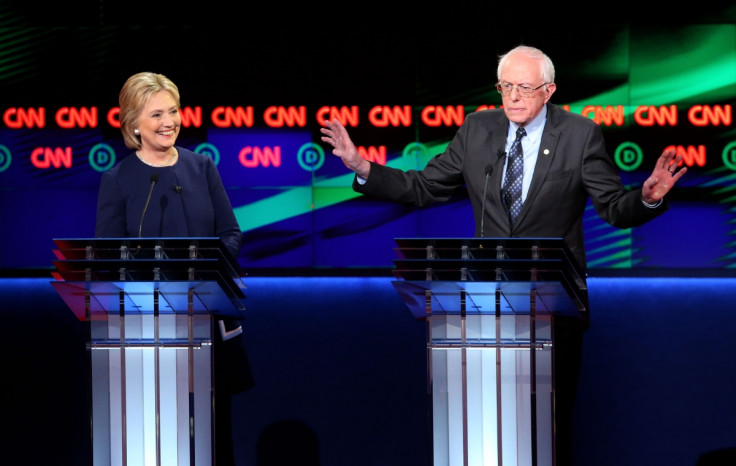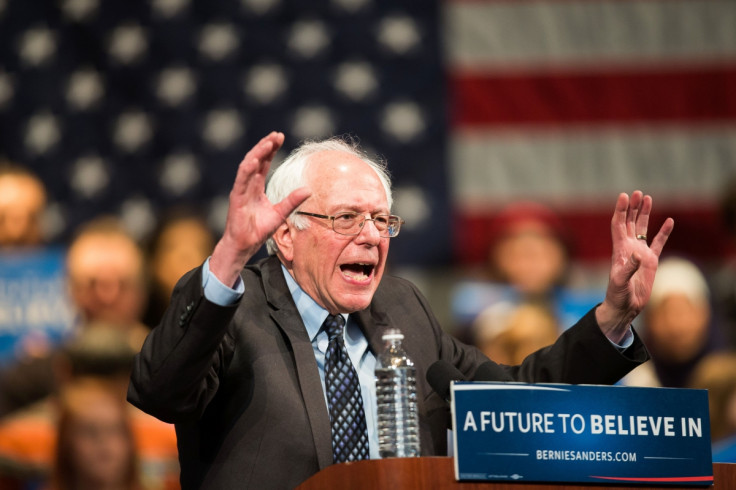Despite Bernie Sanders' big win, he's still an underdog to win the Democratic primary

On Tuesday night (8 March) Bernie Sanders pulled off one of the greatest upsets in the history of presidential primaries. Trailing Hillary Clinton by over 20 points in the polls, he nevertheless somehow managed to win in Michigan. It's hard to overstate just how impressive a win and how big a polling failure this is. It outranks even Clinton's own huge upset win against Barack Obama in the 2008 New Hampshire primary, when she somehow managed to overturn an eight-point deficit in the polls.
First of all, let's be clear: despite Sanders's big win, he's still a massive underdog to win the Democratic primary; even now I don't think he has better than a 10% chance. Clinton has racked up a big delegate lead thanks largely to Southern voters, in particular Southern black voters, who have voted for her over Sanders by massive margins. Sanders showed in Michigan that black voters in northern states might be somewhat more receptive to his message, but he still lost the black vote by a comfortable margin.
Admittedly, most of the South has already voted, and the calendar does get somewhat kinder to Bernie from here on in. His pathway to the nomination has two possible roads. Firstly, Tuesday night could be a sign that the polls are systematically - and massively - underestimating Sanders's support in some states that are demographically somewhat similar to Michigan, such as Ohio and Illinois, which both hold their primaries next Tuesday (15 March). He trails in the polls there too at the moment, but more upset victories would really set the cat amongst the pigeons, and potentially allow Sanders a strong run at later-voting states that award a lot of delegates, such as California, Pennsylvania, and New Jersey.
Secondly, Sanders must be hoping that the FBI soon decides that Clinton's huge failures of basic communications security whilst Secretary of State merit criminal charges. Neither of these is very likely, but Sanders isn't quite a dead duck either.
Nevertheless, it's worth reflecting on why Sanders has been so competitive, especially considering his initial vast disadvantages in both funding and name recognition. Most pundits didn't see it coming. I certainly didn't. Sanders's relative success has been one of the biggest failures of my short forecasting career. I thought he was a paper tiger who wasn't really serious about winning, and who wouldn't really motivate his base of young voters to actually get out to vote. I didn't predict a Sanders victory in New Hampshire until January 12, which is pretty bad, seeing as he won New Hampshire by a vast 22-point margin on February 9. Why was I so wrong?
A lot of the credit has to go to Sanders himself, who has a number of peculiar strengths as a candidate. He's very focused and stays relentlessly on-message, hammering home his core nationalist theme that America is being stolen from its people by corrupt Wall Street oligarchs over and over again.
Sanders' discipline means that no one notices some of his whackier views on foreign policy, since he never really talks about them (Jeremy Corbyn, pay attention). He also has an odd kind of charisma; that deep booming voice is very powerfully masculine, (which is likely to appeal to Middle America), so he never comes across as weak or insincere. His communications team also includes some very smart people, who have crafted some extraordinarily powerful appeals to American identity.

As much as Sanders deserves praise, some of his ability to outperform expectations is probably because of Hillary Clinton's unique vulnerabilities as a candidate. Some of these weaknesses Sanders has already used against her: the rest will no doubt inevitably be exploited to the full by the likely Republican candidate, Donald Trump, in the general election. Insofar as Clinton's campaign has any kind of key message, it's that she's "fighting for you" against vested interests, but as Sanders has pointed out, this doesn't really cohere with accepting hundreds of thousands of dollars from Goldman Sachs to deliver short private speeches.
Anyone who's more awake than Ben Carson knows that Clinton is the ideal candidate for America's oligarchs, who have poured millions into Clinton's campaigns and the Clinton Foundation over the years. In 2008, Barack Obama proved that Clinton's longstanding ties to the oligarchic elite could be used against her and beat her convincingly with a message of "hope, change, youth". Sanders hasn't just mimicked Obama's fundraising strategy, but he's also taken over this message, which, as my fellow IB Times columnist Rory Ellwood pointed out recently, is such a killer blow against Clinton that it still works, even when used by old-as-the-hills white Jewish career politician Bernie Sanders.
Clinton's other weaknesses are ripe for attack. Part of her appeal is that she's supposedly a safe pair of hands, but her legacy of Secretary of State is the Libya debacle and unnecessary information security breaches. When asked about breaking up big banks, her response is the delightful non sequitur "....would that end racism? Would that end sexism?" This coming from a candidate who was a long-standing opponent of same-sex marriage until it was absolutely clear that such a position was no longer politically expedient. The stench of insincerity hangs over Clinton like fumes from an incinerator, and allegations against her husband don't exactly fit well with her supposed platform of greater gender equality.
In a year when the conflict over America's identity – market state or nation state – has come to the fore like never before, Clinton may well find that it's a bad time to be standing so openly as a representative of the market. And if Sanders has held back from attacking some of her intimate weaknesses, you can be absolutely sure that Donald Trump will not.
© Copyright IBTimes 2024. All rights reserved.






